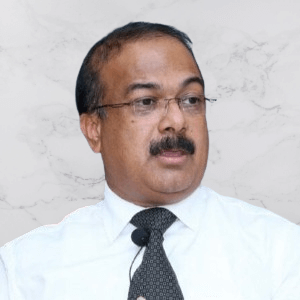Title : Fungal vaccines – Are they important to have
Abstract:
It’s not just the bacteria or viruses that most commonly cause life-threatening disease in human, some of them could be fungal pathogens. Since 2013, the Leading International Fungal Education (LIFE) portal has facilitated the estimation of the burden of serious fungal infections country by country for over 5.7 billion people (>80% of the world's population). The substantial morbidity and mortality rates highlight the relevance of developing effective vaccines to control fungal pathogens. Approximately, 80% of this mortality are due to infections caused by opportunistic fungi. Majority of these patients die due to fungal sepsis caused by uncontrolled fungal growth. Additionally, IFIs can impact vital internal organs like lungs, heart, brain, kidneys, and liver leading to end-organ damage.
On October 25, 2022, the World Health Organisation (WHO) released a report that featured the first-ever list of fungal priority pathogens, a list of the 19 fungi that pose the greatest threat to public health, including Cryptococcus neoformans, Candida auris, Aspergillus fumigatus, Candida albicans, and other high- and medium-group pathogens.
Patients with severe illnesses and those who have serious underlying immune system-related problems are frequently affected by these invasive fungal infections. Those with cancer, HIV/AIDS, organ transplants, chronic respiratory diseases, and post-primary tuberculosis infection are among the populations most at risk for invasive fungal infections. A growing body of research suggests that global warming, an increase in international travel, and increased trade are all contributing to a rise in both the prevalence and geographic range of fungal illnesses. The reported incidence of invasive fungal infections among hospitalised patients increased noticeably during the COVID-19 pandemic. Emerging evidence indicates that the incidence and geographic range of fungal diseases are both expanding worldwide due to global warming and the increase of international travel and trade. During the COVID-19 pandemic, the reported incidence of invasive fungal infections increased significantly among hospitalized patients.
Even with the availability of four classes of antifungal drugs, the burden of life-threatening fungal infections is thought to exceed one million deaths annually, although numbers are difficult to estimate due in part to inadequate availability of diagnostic tests and disease reporting. The annual medical cost of fungal diseases is estimated to exceed 7.2 billion dollars in the United States alone. Recurrent vulvovaginal candidiasis (yeast infection) leads to lost productivity of US$14·39 billion annually in high-income countries.
In mouse studies, protection has been achieved with vaccines against such fungal pathogens. Encouraging results have been obtained with vaccines composed of live-attenuated and killed fungal antigens, crude extracts, recombinant subunit formulations, and nucleic acid vaccines. Novel adjuvants that instruct the immune system to mount the types of protective responses needed to fight mycotic infections are under development. Candidate vaccines include those that target common antigens expressed on multiple genera of fungi thereby protecting against a broad range of mycoses.
However, despite efforts, unfortunately only three vaccines (NDV-3, PEV7 and NXT-3) for Candida have reached human clinical trials. Despite the substantial global burden of human fungal infections, there are no approved vaccines available to prevent and control human invasive fungal infections, especially at-risk individuals. (506 words)
Audience Take Away
- The burden of serious fungal infections is over 5.7 billion people (>80% of the world's population). Approximately, 80% of this mortality are due to infections caused by opportunistic fungi. Majority of these patients die due to fungal sepsis caused by uncontrolled fungal growth.
- Unfortunately, we still do not have any approved prophylactic fungal vaccine.
- Formidable challenges remain in developing fungal vaccines.



